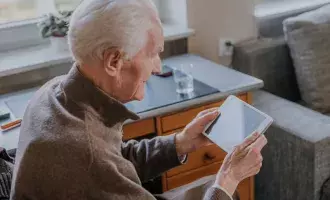
Our highlights of 2025
2025 was the year we accelerated our journey to become the UK’s leading AI-enabled business process outsourcer. Watch our video which tells the story of Capita in 2025.

One year of AI transformation: a reflection
Our Chief AI and Product Officer, Sameer Vuyyuru, reflects on the rapid transformation of Capita in the last 12 months.

Capita strengthens partnerships with leading brands in Ireland
We announce a series of contract extensions with some of Ireland’s most recognised brands, reinforcing our role as a trusted partner in delivering better outcomes.

Delivering a dynamic filmmaking experience to accelerate learning
In a hands-on workshop at the Fire Service College we partnered with Lloyds to deliver a dynamic filmmaking experience exemplifying the principles of rapid scalable learning.
Our expertise in your industry
We’re a consulting, transformation and digital services business, delivering innovative solutions to transform and simplify the links between businesses and customers, and governments and citizens. We offer unparalleled breadth and depth of expertise across each of the industries we support – find out more by selecting your industry below.

Financial services
We help financial services clients navigate the unique, evolving challenges of a complex, highly-regulated industry, helping to transform their customers’ experiences.

Central government
We’re a vital strategic partner to government, delivering technology-enabled services to create better outcomes for citizens and communities.

Local government
We work together with local authorities to improve productivity and outcomes, helping to create thriving local spaces and exceeding service expectations.

Telecommunications
We apply our industry- and technology expertise to help our telecoms clients transform operations, processes and culture for seamless end-to-end experiences.
Latest insights
Capita experts share their opinion and insight on new ideas, approaches, technology and topics related to our business and markets.
Read about our work
Every day we’re helping our clients transform and simplify services with innovative solutions. Here are some practical examples of how we’re delivering these solutions and the difference they make.
Latest news
Find out what's happening around Capita.























